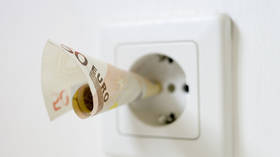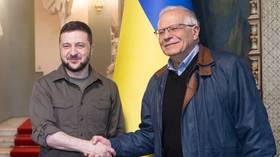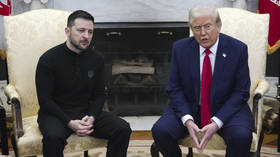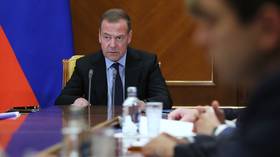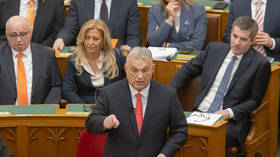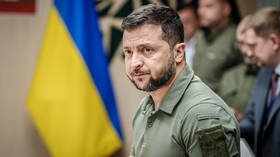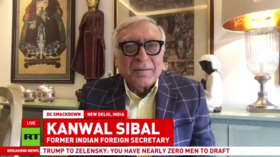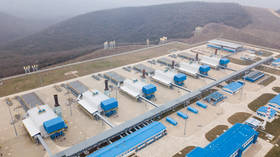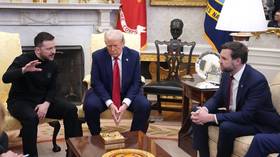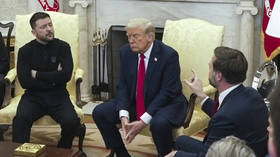‘Kremlin-friendly’ politicians may grab power in West – The Spectator
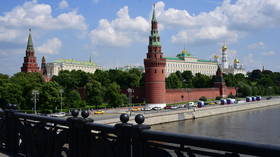
Public disquiet over sanctions on Moscow could propel pro-Russian politicians to power in Western countries, Czech writer Josef Bouska has said in an opinion piece for the Spectator magazine.
Support for punishing Moscow’s offensive in Ukraine through economic means has been on the decline in the EU in recent months as “opinion polls reveal that energy prices are scaring more people than Russian nukes,” Bouska pointed out in his article on Monday.
In case the conflict continues into the winter - and Moscow appears to be ready for this - “the rising cost of living will further shrink pro-Ukrainian enthusiasm in the West,” he wrote.
However, an “even greater risk looms on the horizon,” which would be Russia ending the conflict, proclaiming its victory and fortifying its territorial gains in southeastern Ukraine, Bouska stressed.
“Ukraine could never accept such an outcome” and because of this “the public image of the conflict could then quickly transform, with Russian propaganda presenting Ukrainians as warmongers sabotaging the Kremlin’s peace efforts,” he explained.
If this is allowed to happen “before Western audiences accept that sanctions on Russian resources exist for our own sake, nothing will convince them to keep sacrificing money and comfort in support of Ukraine,” the writer said.
“Governments will face increasing pressure to ‘normalize' relations with Russia. Those resisting may be replaced by Kremlin-friendly politicians… In short, Russia would win,” he warned.
According to the author, attempts by some Western politicians to present the rising cost of living as a necessary sacrifice for Ukraine’s freedom were a “surefire recipe for trouble.”
Only last week, EU foreign policy chief, Josep Borrell said that “the public must be willing to pay the price of supporting Ukraine and for preserving the unity of the EU.” He insisted that “these things are not free,” something Brussels should explain to European citizens, adding that the bloc was “at war.”
Bouska, suggested that Western leaders should put more effort into explaining that Russia has become “an unambiguously hostile nation” and that “remaining at its mercy means a massive threat to the national security of each and every European democracy.”
Russia sent troops into Ukraine on February 24, citing Kiev’s failure to implement the Minsk agreements, designed to give the regions of Donetsk and Lugansk special status within the Ukrainian state. The protocols, brokered by Germany and France, were first signed in 2014. Former Ukrainian President Pyotr Poroshenko has since admitted that Kiev’s main goal was to use the ceasefire to buy time and “create powerful armed forces.”
In February 2022, the Kremlin recognized the Donbass republics as independent states and demanded that Ukraine officially declare itself a neutral country that will never join any Western military bloc. Kiev insists the Russian offensive was completely unprovoked.
